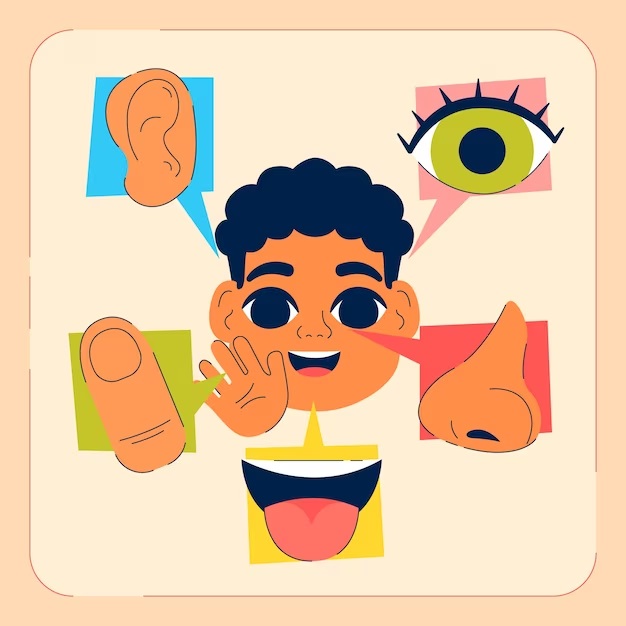The Power of a Genuine Smile in Attraction
The Power of a Genuine Smile in Attraction
A genuine smile is a powerful tool in attracting people towards us. It disarms any negativity or hostility, and creates a positive atmosphere. A smile is universal, it is understood by people of all cultures and backgrounds. It is the first thing people notice and often remember about us. A smile can make us more approachable, likeable and trustworthy. Studies have shown that people who smile more are perceived as more attractive and successful than those who do not. A smile can have a profound effect on our personal and professional relationships.
A smile also has a positive impact on our mental and emotional well-being. It releases endorphins, the ‘feel-good’ hormones, and reduces stress levels. A smile can make us feel happier, more confident and optimistic. It can also boost our immune system and help us recover faster from illnesses. A genuine smile is contagious and can spread positivity to those around us.
However, it is important to note that not all smiles are created equal. A genuine smile is one that involves the eyes, known as a Duchenne smile. A forced or fake smile only involves the muscles around the mouth, and can be easily detected. A genuine smile can be developed through practice, by focusing on positive thoughts and feelings. It is also important to be authentic and sincere in our interactions with others. A genuine smile can make a lasting impression, and help us build meaningful connections with people in all areas of our lives.
Understanding the Appeal of Smiling
Smiling is a universally recognized expression that communicates positive emotions such as happiness, friendliness, and approachability. When we see someone smile, we tend to interpret their actions as a sign of goodwill, leading to more positive interactions between people. Research shows that smiling can also evoke a positive emotional response within ourselves, even if the smile is forced or fake. Smiling can change our mood and make us feel happier, which is why it's often mentioned as a natural remedy for sadness or stress.
Smiling also has numerous physical and psychological benefits. When we smile, our brain releases feel-good neurotransmitters called endorphins, which can reduce pain, lower stress levels, and improve our immune system. Additionally, smiling can lower our heart rate and blood pressure, leading to improved cardiovascular health. Psychologically, smiling can boost our confidence, increase our likeability, and improve our communication skills. People who smile often are perceived as more friendly, approachable, and trustworthy, making them more successful in social and professional interactions.
Despite the many benefits of smiling, some people may find it difficult to smile due to personal reasons, such as dental issues, low self-esteem, or cultural background. However, everyone can learn to smile more often by finding reasons to be grateful, practicing positive self-talk, and surrounding themselves with people who make them happy. As the saying goes, 'Smile and the world smiles with you.' By smiling more, we can create a ripple effect of positivity and make the world a happier place.
The Art of the Genuine Smile
The genuine smile is a powerful tool that can instantly brighten up any dull day. It is not just any ordinary smile, but one that radiates from within and reaches out to touch others. The art of the genuine smile lies in the ability to reflect happiness and positivity without any hidden agenda. It is a sincere expression of joy that makes others feel at ease and accepted in one's presence. A genuine smile can create a ripple effect of happiness, uplifting not only oneself but also those around them.
Studies show that the act of smiling can have a significant impact on emotional and physical well-being. A genuine smile releases endorphins, the body's natural feel-good chemicals, which can improve mood and reduce stress levels. It can also lower blood pressure and heart rate, leading to improved cardiovascular health. Smiling can also make one look more attractive, approachable, and trustworthy, making it an excellent social tool in building relationships and creating positive first impressions.
However, genuine smiles may not always come easily to everyone, especially in stressful or challenging situations. It takes practice to cultivate the habit of genuine smiling, but it is a skill that anyone can learn with time and effort. The key is to focus on positive emotions, such as gratitude, kindness, and humor, and to steer clear of negative thoughts and emotions. Practicing relaxation techniques, such as deep breathing and meditation, can also help to calm the mind and reduce stress, making it easier to feel genuine joy and love. With practice, a genuine smile can become a natural and effortless expression of one's inner happiness and positivity.
The Psychology of a Real Smile
A smile is not just a facial expression; it is a means of communication. When you see a genuine smile, you know it immediately. It lights up the whole face, the eyes sparkle and their body language is open and friendly. The psychology surrounding a real smile is fascinating. It has been shown to have a range of benefits, from boosting our mood and reducing stress to enhancing our relationships with others.
Research has revealed that there are two types of smiles – a genuine smile and a polite smile. A genuine smile or Duchenne smile, named after the French neurologist who discovered it, is a smile that comes from a place of genuine happiness, and it involves the contraction of both the zygomaticus major, which raises the corners of the mouth, and the orbicularis oculi muscles, which raises the cheeks and causes crow's feet around the eyes. A polite smile, on the other hand, also known as a social smile, is when we smile out of politeness or social convention. Polite smiles typically involve only the zygomaticus muscle, and they don't reach the eyes.
Smiling is contagious, and when we see someone smile, it activates the reward centers in our brain, releasing feel-good chemicals such as dopamine and serotonin. Faking a smile can also have benefits, as research shows that even a forced smile can reduce stress and improve mood. However, it is important to remember that not all smiles are genuine, and people may smile to mask negative emotions or deceive others. Being able to distinguish between a real smile and a fake one is a valuable tool in understanding and navigating social interactions.
Increasing Your Attractiveness with a Smile
Having a beautiful smile can significantly enhance your attractiveness to others. A smile can communicate positive emotions and create a warm, approachable presence. When you smile, the muscles around your mouth and eyes relax, making you look more relaxed and inviting. Thus, smiling more often can help you connect better with people and make them feel comfortable around you. So, if you want to increase your attractiveness, start by showing off those pearly whites!
Another benefit of smiling is that it can improve your mood and overall sense of well-being. Research shows that the act of smiling can trigger the release of feel-good hormones like endorphins and serotonin, which can lower stress levels and boost your mood. Smiling can also help you cope better with challenging situations by activating positive emotions and reducing negative thoughts. Therefore, if you want to feel more confident, happy, and relaxed, try smiling more often throughout your day.
Finally, having a healthy, radiant smile can boost your self-esteem and confidence. When you feel good about your smile, you tend to feel better about yourself and your overall appearance. Moreover, a smile can also create a positive impression on others, which can enhance your confidence and social skills. To achieve a beautiful smile, you can start by practicing good oral hygiene, such as brushing and flossing regularly, and visiting your dentist for routine checkups. You can also consider getting cosmetic treatments like teeth whitening or veneers to enhance the appearance of your smile.
The Non-Verbal Benefits of Smiling
Smiling is not only a way of expressing positive emotions but also has several non-verbal benefits. It makes people appear more attractive and approachable, which helps in building better social connections. Smiling also has a psychological effect, as it triggers the release of endorphins, which are the body's natural feel-good chemicals. These endorphins reduce stress levels and make people feel happier and more relaxed.
Smiling also has a positive impact on one's professional life. It can make a person appear more confident and trustworthy, which is important in building business relationships. A genuine smile can convey a positive attitude and create a sense of warmth, making people more receptive to ideas and suggestions. People who smile often are seen as more successful and approachable, which can also help in career growth.
Moreover, smiling has a contagious effect that can spread positivity and happiness. When a person smiles, it triggers a response in other people's brains, making them want to smile back. This creates a positive feedback loop, which can benefit everyone involved. Smiling also helps in reducing conflicts and tension, as it creates a friendly and approachable atmosphere. It is a simple yet powerful way of making the world a happier place.
How Your Smile Influences Others
Your smile has a profound impact on the people you interact with. When you smile, it conveys warmth, friendliness, and positivity. It’s a universal symbol of happiness, and one of the easiest ways to improve your interpersonal relationships. The simple act of smiling can make you more approachable, likable, and trustworthy. This is why it’s important to practice good dental hygiene, as well as look after your mental health. When you feel good, it shows up in your smile, making you a better friend, colleague or partner.
Not only does smiling help others feel good, but it can also help you feel better too. Research has shown that smiling can help reduce stress and anxiety, lowering your heart rate and blood pressure. Smiling also triggers the release of endorphins – the happy hormones –which can improve your overall mood. Whether you’re in a bad place or just having a bad day, smiling can give you an instant boost, helping you feel more positive and optimistic about the future. The best part? The more you smile, the more you’ll benefit from these positive effects!
Finally, your smile is a reflection of your personality. It speaks volumes about your level of confidence, your sense of humour, and your overall approach to life. A bright, confident smile can help you project a strong, positive image, which can be incredibly beneficial in both your personal and professional life. Whether you’re going on a first date, attending a job interview, or just meeting someone new, your smile can help you make a great first impression, and set the tone for a productive and fulfilling relationship. So, don’t underestimate the power of your smile – it could be your biggest asset!
The Impact of Your Smile on Romance
A smile can be a powerful tool in the realm of romance. It can create instant connections that can lead to relationships. When you smile, you exude positive energy and confidence, which can be very attractive to others. It can also make you seem approachable, and people are more likely to strike up a conversation or ask you out on a date if you have a friendly smile on your face. Your smile can make you stand out from the crowd, and help others see you as a potential partner.
In addition to creating an initial connection, a smile can also help to maintain a relationship. Asking your partner how their day was, and smiling when they respond can make them feel heard and appreciated, which is essential in a healthy relationship. Smiling can also help to diffuse tense situations, and reduce conflict. When you smile, you can communicate a sense of understanding and empathy, and reassure your partner that everything is okay. Your smile can help to create a positive environment in your relationship.
A smile can also have positive effects on your own well-being, which can, in turn, impact your relationships. Smiling can improve your mood, reduce stress levels, and even boost your immune system. When you're feeling good about yourself, and your life, it can be easier to form and maintain healthy relationships. Your smile can be a reflection of your inner state, and can communicate a sense of positivity and happiness to others. By sharing your smile with others, you can create an atmosphere of happiness, and help to build stronger, more meaningful relationships.
Facial Expressions and Attraction
Facial expressions play a significant role in attraction. When we are attracted to someone, we tend to smile more and make eye contact. This nonverbal communication can signal our interest and can be seen as a sign of availability. On the other hand, if someone is not attracted to us or is uncomfortable, they may avoid eye contact or have a closed-off expression. By paying attention to these cues, we can understand how our potential partner feels about us, which can help us decide whether to pursue a relationship.
Studies have shown that certain facial expressions are universally attractive. For example, a smile is a powerful signal of happiness and friendliness, and it's difficult to resist its charms. Other expressions that are regarded as attractive include raised eyebrows, open eyes, and a relaxed facial expression. These cues signal positive emotions and can make us appear more approachable and confident. By paying attention to our facial expressions and body language, we can project the image we want to convey and make ourselves more attractive to potential partners.
In conclusion, facial expressions play a key role in attraction. They can signal our interest, our availability, and our emotions, which can help us build a connection with a potential partner. By being mindful of our own facial expressions and observing those of others, we can gain valuable insights into attraction and communication. Whether we're looking for a long-term relationship or just a fun fling, paying attention to our nonverbal communication can help us achieve our desired outcome.
The Power of a Real Smile on First Impressions
First impressions are critical in social interactions, especially in contexts such as job interviews, business meetings, and first dates. Research shows that people form an impression of others within seconds of meeting them, based on various cues, including facial expressions. A genuine smile can be a powerful tool in creating positive first impressions, as it conveys warmth, friendliness, and approachability. A real smile engages the muscles around the eyes, known as the orbicularis oculi, and creates wrinkles or crow's feet, which are seen as a sign of sincerity.
Individuals who smile genuinely are perceived as more likable, trustworthy, and attractive than those who do not. A 2002 study published in the Journal of Nonverbal Behavior found that participants who saw a video of someone genuinely smiling rated the person as more attractive, intelligent, and sociable than those who saw a video of someone faking a smile or no smile at all. Moreover, genuine smiles can help to build rapport and establish a positive connection with others, which can lead to better outcomes, such as successful negotiations and increased sales.
However, not all smiles are created equal. While a genuine smile can have a positive impact on first impressions, a forced or insincere smile can have the opposite effect. People are adept at detecting fake smiles, which involve only the muscles around the mouth and do not engage the orbicularis oculi. A fake smile can be interpreted as insincere, untrustworthy, and even manipulative. Therefore, it is important to be aware of one's facial expressions and strive to convey genuine emotions through a real smile.
Unmasking the Mystery of Smiling
Smiling is a universal expression of positive emotions, but its mystery lies in its complex nature. It involves not only the contraction of facial muscles, but also a complex interplay among the brain, nervous system, and social environment. In fact, research has shown that smiling can influence a person’s mood, behavior, and even physiology. It releases endorphins, the body’s natural feel-good chemicals, boosts the immune system, and reduces stress and anxiety.
One of the key elements in understanding the mystery of smiling is the role of social factors. Social smiling is the kind of smile we use to communicate with each other, and it can convey a range of emotional states, from friendliness and happiness to shyness or embarrassment. Interestingly, research has shown that our social environment can influence our tendency to smile. For instance, people tend to smile more in the presence of friends or romantic partners, and less when they are alone or around strangers.
Another important factor in unmasking the mystery of smiling is the distinction between genuine and fake smiles. While a smile may appear to be a simple gesture, there are actually different types of smiles that reflect different emotional states. A genuine smile, also known as a Duchenne smile, involves the contraction of muscles around the mouth and the eyes, and is usually associated with true happiness or joy. In contrast, a fake smile involves only the muscles around the mouth, and is often used to hide negative emotions, such as fear or discomfort. Detecting the difference between genuine and fake smiles can be a valuable tool in social interactions, as it helps us to better understand the emotions of others.
The Positive Effects of Smiling
Smiling is a powerful tool that can greatly improve our well-being. When we smile, we activate different parts of our brain that release hormones such as endorphins and cortisol. Endorphins are responsible for feelings of pleasure and happiness, while cortisol helps to relieve stress and anxiety. Therefore, a simple act of smiling can go a long way to improving our mood and reducing negative emotions.
Furthermore, smiling is contagious! Research has shown that when we see someone smiling, it triggers a response in our mirror neurons, causing us to smile back. This creates a positive feedback loop, leading to an overall increase in happiness and well-being. Additionally, when we smile, we tend to be perceived as more approachable and trustworthy, which can greatly enhance our personal and professional relationships.
Finally, smiling can also positively impact our physical health. Studies have shown that smiling can lower our heart rate, reduce blood pressure, and boost our immune system. By reducing stress and increasing our body's ability to fight off illness, we can enjoy a higher quality of life overall. In conclusion, smiling is a simple yet powerful tool that can have numerous positive effects on our mental and physical health. So the next time you're feeling down or stressed, try smiling – it just might make all the difference!
Exploring the Magic of Grinning
Grinning is a powerful act that can do wonders for the human psyche. It has the ability to improve one’s mood, make others feel more comfortable, and even create a sense of unity among strangers. The act of grinning releases endorphins in the brain which serve as natural painkillers and mood boosters. This is why we often feel happier after a good laugh, which is essentially a prolonged grin. Grinning can also reduce stress and anxiety by releasing tension in the facial muscles.
However, grinning is more than just a physiological response. It is a social cue that can communicate a wide range of emotions, from joy to sarcasm to discomfort. In many cultures, grinning is an essential part of communication and politeness. It can be a way to show respect or indicate agreement. On the other hand, it can also be used to mask negative emotions, such as anger or fear. It is important to pay attention to nonverbal cues when interpreting a grin, as it can reveal much more than just a smile.
Grinning can also have a profound impact on relationships. It can create a sense of intimacy and closeness between people, especially when shared in moments of joy or humor. It can also be a way to diffuse tension and conflict, as it can make others feel more comfortable and connected. In fact, studies have shown that couples who smile and laugh together are more likely to have long-lasting relationships. Grinning can also enhance one’s leadership skills, as it can convey confidence and approachability. It can create a positive and welcoming atmosphere, which can be essential in building trust and rapport with others.



